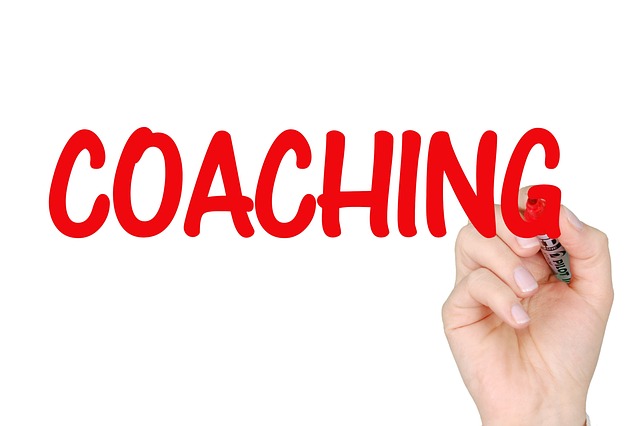Understanding the Importance of Adaptability in Personal Success
In today’s fast-paced world, the concept of adaptability is gaining vital importance. The adaptability mindset is not just a buzzword; it’s a fundamental trait that can directly influence your personal success. When you think about it, life constantly throws challenges our way. These challenges often come uninvited and can shake our very foundation. What helps us cope and thrive is our ability to adapt. Embracing change rather than resisting it opens numerous doors, encouraging growth and innovation. When we adapt well, we become more flexible, resilient, and prepared for life’s unpredictable waves. This mindset forms the bedrock for personal success.
Consider a time when you faced an unexpected challenge. Maybe it was a job loss, a relationship shift, or even a health scare. Each of these scenarios required a level of adaptability that not everyone possesses. A strong adaptability mindset helps individuals look at change as a stepping stone rather than a stumbling block. It nurtures the skills needed to pivot quickly, think critically, and find solutions in moments of uncertainty. This level of responsiveness doesn’t just enhance personal success but also cultivates a sense of inner peace. Instead of dwelling on the negatives that change often brings, you start seeing the silver lining. For many, this shift in perspective becomes an instrumental part of their journey toward achieving goals and realizing dreams.
Why an Adaptability Mindset Matters in Everyday Life
To fully grasp why developing an adaptability mindset is crucial, we must examine its role in our daily lives. Each day presents a myriad of situations requiring us to adjust our plans. Whether it’s an unexpected traffic jam that makes you late to work or a last-minute schedule change that disrupts your evening, countless daily occurrences test our flexibility. An adaptability mindset transforms these disruptions into opportunities for growth. When you embrace an adaptable approach, you create a mental space that welcomes change. This welcoming attitude allows you to respond creatively, find alternative solutions, and maintain a forward momentum in pursuit of your objectives.
Furthermore, an adaptability mindset promotes emotional resilience. Let’s face it; life isn’t always a smooth ride. There are moments when the unexpected can feel overwhelming. Those possessing an adaptable mindset bounce back more effectively. They acknowledge their emotions but don’t dwell on them. Instead, they focus their energy on identifying what they can control and how they can move forward. This resilience doesn’t mean you won’t experience stress or frustration, but it enables you to weather the storms in life with a focus on solutions rather than problems. By cultivating adaptability, you develop tools that enhance both your professional and personal life, allowing you to navigate complex ecosystems where change is the only constant.
Practical Steps to Foster an Adaptability Mindset
Now that we understand why cultivating an adaptability mindset is essential, let’s discuss practical steps to foster it. Just like building a muscle, developing adaptability takes practice and intentionality. First, start by embracing a growth mindset. A growth mindset involves believing that your abilities and intelligence can be developed with effort and perseverance. This principle forms a solid foundation for adaptability. When you shift your thinking to welcome challenges as chances to learn, you automatically position yourself better for adaptability. Each challenge presents a unique opportunity to expand your skill set and overcome obstacles you previously thought insurmountable. Encouraging this type of mindset lays the groundwork for personal success.
Another step involves expanding your comfort zone. Comfort zones can become restrictive, limiting our capacity to adapt. Engage in new experiences that push your boundaries. This could mean trying a new hobby, traveling to an unfamiliar destination, or even networking with people outside your usual circles. These experiences challenge your existing perceptions and foster resilience. Moreover, accepting failure as part of growth significantly enhances adaptability. Every time things don’t go as planned, assess the situation, learn from the missteps, and get back on track. Remember, failure isn’t a personal defeat; instead, it’s valuable feedback guiding you toward better strategies moving forward.
The Role of Reflection in Developing Adaptability
Reflection plays a crucial role in developing an adaptability mindset. Taking time to reflect helps you internalize your experiences. After facing challenges or changes, set aside a few moments to think about what happened and how you responded. Ask yourself questions like, “What went well? What could I have done differently?” This practice enables you to gain insights into your reactions, helping you adjust your future responses. Journaling can be a powerful tool in this reflective process. Write down your thoughts and feelings regarding the challenges you face. Not only does this practice clear your mind, but it often reveals patterns related to your adaptability.
Moreover, discussing your experiences with trusted friends, mentors, or coaches can provide different perspectives and guidance. These conversations often illuminate blind spots in your approaches and offer new strategies for future situations. It’s vital to create an environment where feedback is welcomed and valued. Engaging in such dialogues promotes continuous learning, reinforces an adaptability mindset, and fosters personal success. Remember, growth and adaptability are ongoing journeys. Each step—whether forward or backward—contributes to your trajectory.
Building a Support System to Enhance Adaptability
Equally important in cultivating an adaptability mindset is building a robust support system. Surrounding yourself with positive, motivating individuals significantly influences your ability to adapt. Friends and family who encourage your growth and support your goals empower you to take risks and embrace change with confidence. This kind of environment breeds motivation and reinforces a culture of adaptability. In contrast, negativity can stifle your growth. Thus, aim to cultivate relationships that inspire you to be your best self, including peers who are also committed to their personal success.
Networking also plays a crucial role in enhancing adaptability. Expanding your circles to include diverse individuals provides fresh ideas and perspectives, essential for adapting in various contexts. The more viewpoints you absorb, the better equipped you’ll be to navigate uncertainty. Attend industry events, workshops, or join professional groups where you can connect with others facing similar challenges. Learning from them gives you ample examples of effective adaptability, which may prove invaluable as you face your own hurdles.
FAQs on Cultivating an Adaptability Mindset
What is the adaptability mindset?
The adaptability mindset refers to the ability to adjust to new conditions, learn from experiences, and approach challenges with resilience. It emphasizes flexibility and openness to change.
Why is developing an adaptability mindset important for personal success?
Developing an adaptability mindset is crucial for personal success because it allows individuals to navigate life’s challenges effectively. By embracing change, people can seize opportunities and grow, both personally and professionally.
How can I practice adaptability in my daily life?
You can practice adaptability by embracing a growth mindset, expanding your comfort zone, reflecting on experiences, and building a supportive network of encouraging individuals. Regularly exposing yourself to new challenges will also improve your adaptability.
What role does failure play in developing an adaptability mindset?
Failure plays a significant role in developing an adaptability mindset. It provides valuable feedback, highlighting areas for improvement. Embracing failure as a learning opportunity fosters resilience and encourages a proactive approach to future challenges.
How can reflection enhance my adaptability?
Reflection enhances adaptability by allowing you to internalize experiences, learn from mistakes, and identify effective strategies for future challenges. Journaling and discussing your experiences with others can deepen your understanding and enhance your responses to change.



